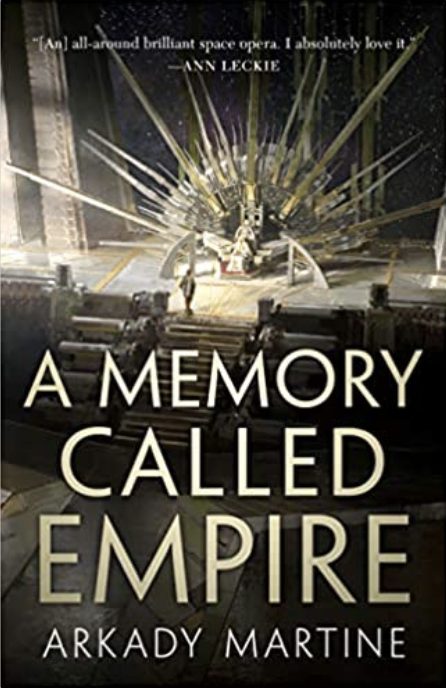I started reading Arkady Martine’s _A Memory Called Empire_ last night (in the hot tub, because I was sore from all the walking and needed to soak my hips for a bit, and I have to admit, it was sort of funny reading a book in a hot tub that is otherwise full of somewhat drunken girls in bikinis — not bad, just funny and a little hard to concentrate…), and it starts with pages of universe-building info-dump, and I wasn’t sure, but, I think that’s okay.
I mean, dramatizing is all well and good, but sometimes, the most efficient way to convey a whole mess of background information is just TELL the reader. This is how it is. Okay? Okay. Onwards.
Maybe that’s just me justifying the bit I was drafting just now, though. ![]() What do you think? Info-dump in books — yay / nay?
What do you think? Info-dump in books — yay / nay?
In my defense, it’s not the start of the book, though. Lots of infodump at the start is a little rough to get through sometimes.
*****
“A robot gave humanity the stars. The Mars settlement was struggling along, the international space station had been revitalized and expanded, Jupiter and Uranus and Neptune had their own industrious rovers. Sedulous was sent to Pluto, because even if Pluto had been downgraded from planet status, it was still worth exploring, surely.
Sedulous trundled along across the rocky surface, diligently mapping that frigid landscape. When it discovered the large black box, tucked into a sheltering crevasse, sibling Charon hung directly overhead, fixed in its tidal-lock.
A mirror, a beacon, a hint, a sign? Etched on the metal surface of the box, hieroglyphics that took years to translate. A gift, freeing humanity from the constraints of sublight. A wormhole drive, a map charting out a network: seven wormholes in easy reach, and systems hosting habitable M-class planets on the other ends.
The denizens of Earth learned how to reproduce the drive, how to install it in a ship, but no one understood how the thing worked. It seemed to operate by other laws of physics altogether.
It was inevitable that humanity would build a ship and go, heedless of the risk. And most of the time, it worked. Most of the time, passage between lasted no longer than a breath held for a count of three. Sometimes, a ship Jumped, and never emerged. Lost.”
– Jump Space

